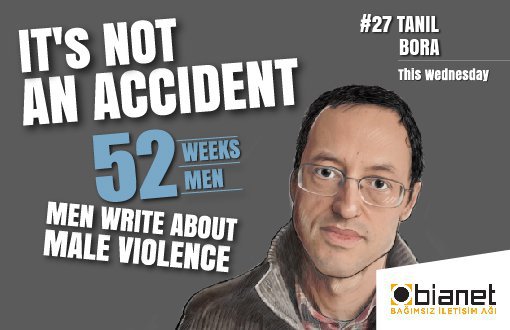Click to read the article in Turkish/Kurdish
Let me start by introducing a ragged, gloomy scene:
"I was in my pajamas. I was in need of getting dressed. At the very least I had to gather my medicine to take with me. I got up, started to get ready but the lieutenant colonel wasn't leaving the room. I told him that he had to leave. 'Why? We both are men', he said. I answered him: I reminded him that there is a maxim of politeness among men. Then he left me alone."
These lines are from Celal Bayar's prison diary kept in Kayseri jail (October 5, 1963).
Women as well may have the aptitude for cancelling privacy when they are among themselves, I don't know. I don't think it extends as far as it does among men.
"Aren't we all men" is a great tool to ward off privacy. Because being man-to-man is thought to open the door to sincerity, transparency and honesty. Candor of "having nothing to hide". Vast and "genuine" sincerity that is believed to be possible only among men.
However, the right to privacy is a measure of civilization. It is not an opportunity "to be able to hide" something because what privacy protects is a person's right to be on one's own, to have their own space, their autonomy. That man-marking of being man-to-man is an obstacle even to the autonomy of "the man"...
*
"Let's have a man-to-man talk". It's an invitation of a father to his son, an uncle to his nephew, and sometimes a friend to his friend, an invitation that is at times mixed with a challenge. Speaking man-to-man does away with privacy, moreover it provides an opportunity for the uncanny, the obscene to uncloak. Door of secrets is passed through and salvation is reached. Speaking man-to-man whets the feeling of honesty and sincerity, it equips one with a noble feeling of being chosen against the dishonest and insincere world (which includes the "ignoble" ones as well as the women).
*
According to evolutionary psychologists, historical anthropologists and whatnot, the aptitude towards violence and aggression increases in all mammalian communities that consist of males. During the colonization of western America, for instance, homicides decreased with the arrival of women, as the women population grew.
Being man-to-man may act as an incitement to let oneself go, be impulsive, run rampant. Customarily, man-to-man conversations among teenagers tend to turn into a feast of recklessness. With an appetite to appease the hunger of the times spent in the company of women and girls, as it were...
*
The warning of "There are ladies here"... The efforts to increase the number of women in the bleachers at soccer matches... The shipshape festivities that brought the boarding school boys together with the girls studying at military schools, which went on until the 1970s I think... These are all arrangements aimed at disciplining the havoc caused by being man-to-man...
I do not know if they had it in our school as well. But when I was studying as a boarding student in the 70s, perhaps because there were also girls in the class as day students, it was not deemed necessary to organize such bonding-civilizing events. But then we were not quite civilized. By and large, we remained aloof from even the ranks of being human by day and boor by night; we were boors during the day as well. Being man-to-man at night was so principal, so binding and it was so self-sufficient and created such an authority of surveillance that there was only one way to look at girls, even a "friendly" relationship was an object of ridicule. Later, when we finally wrapped our heads around it, we—at least, some of us—tried to fix it. Today, when we are among friends (man-to-man!), we boo ourselves.
*
I become uneasy when the way a man conducts himself among men is too different from the way he conducts himself in the company of women. With some of them, playing "cool", being polite and acting "cautious" around women is anyways a telltale sign that all this politeness (including that "politeness among men" which Celal Bayar mentioned) will disappear when he is hanging out man-to-man.
In fact, for them, the man-to-man talks are free fields where they are relieved of the burden of politeness. Politeness is something like an after-shave that you put on your face when you appear before women. It is not an immanent value. It is an instrument, a resource to be used in creating an impression. A limited resource. A resource that will be consumed only when it is necessary, a resource that will be used sparingly.
Needless to say; affixed to politeness, which in the assembly of men is suspended on the hanger of all things superfluous, is also a femininity and "what's more" a suspicion of homosexuality as well. Politeness is regarded as coquetry and is the "border gate of cilvegözü" (the eye of coquetry)! When women and "especially" homosexuals do not restrain themselves, when they speak "explicitly" and even use slang, the most manly gatherings hide behind the cloak of politeness in any case. The false politeness of limited liability is also the warden of homophobia.
There is a fuse extending from that liberty, which is attributed to the man-to-man relationship, to the false politeness "offered" to women. The impoliteness savored in a state of relief when hanging out man-to-man multiplies the artificiality of the politeness shown to women - it becomes the fuel of the violence and roughness that will explode when the necessity of politeness disappears. (TB/AŞ/AP/SD/TK/IG)
* Images: Kemal Gökhan Gürses





